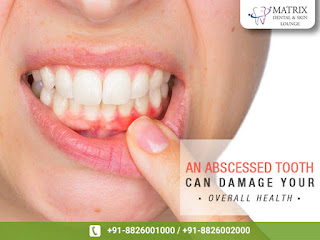Is Root canal treatment safe for pregnant women?
Pre-conception care, which includes dental examinations and treatments, is critical for successful pregnancy outcomes. Even if you've had past checks, some dental concerns may not show up until you're pregnant.
Being
pregnant often lowers your overall immunity and predisposes you to a variety of
medical ailments, including gum and tooth problems.
But
what are the risks of having dental operations while pregnant? While some
expectant mothers may avoid going to the dentist due to concerns about their
developing foetus, the Dental Association claims that doctors can perform
preventative, diagnostic, and rehabilitative oral health care operations safely
at any stage of pregnancy.
Over
the years, several areas of practise, such as local anaesthetics, have aroused
concerns among patients and health care practitioners. Recent research
indicates that anaesthetic-assisted dental treatment is not associated with a
major teratogenic risk.
Is
it safe to get a root canal while pregnant?
A
root canal treatment (RCT) will be recommended by your dentist to prevent a
severe infection, such as an abscess, from developing in your teeth. RCT is
generally safe, but we must proceed with caution because we are dealing with
two delicate lives during pregnancy.
Most
pregnant women who require a root canal have a number of issues. First, the
technique may cause undue stress to both the mother and the foetus due to its
anxiety-inducing nature. Medication and other forms of therapy can also have an
impact on the developing foetus.
Depending
on your gestational age, your dentist will take the appropriate steps to
protect your baby throughout the treatment. A root canal is safer than the
issues that could occur if no treatment is done.
When
is the best time during pregnancy to have an RCT?
Although
professional groups suggest root canals at any stage of pregnancy, some stages
are preferable since the risk to the foetus or mother is lower. For example,
root canal therapy should be avoided during the first trimester since foetal
organs mature during this time and the medications used may induce aberrant
development.
In
the later stages of pregnancy, however, lying on the back can be quite painful.
That is why, unless the tooth infection necessitates immediate treatment, a
root canal in the third trimester is not recommended.
As
a result, the second trimester remains the best period for root canal therapy.
The risk to the foetus is minimal, and the mother will be comparatively
unaffected.
Potential
Dangers of the Root Canal Procedure
In
general, root canal therapy is risk-free. However, some potential hazards that
frequently cause concern are as follows:
Dental
X-rays
Radiation
exposure in any way can harm your child. As a result, it is advised deferring
non-essential dental x-rays, such as those taken during yearly exams. However,
without an intraoral X-ray, detecting tooth infection in patients requiring a
root canal is impossible.
Nonetheless,
adequate shielding is required throughout the process to protect the safety of
your unborn baby. When you visit the dentist, inform the office personnel that
you are pregnant, and they will take all necessary precautions to protect your
foetus during the X-ray.
Anesthesia
Local
anaesthetics are used during numerous dental procedures. The most commonly used
anaesthetic does not cross the placenta and poses no risk to the foetus. You
should not be concerned about your baby's reaction to anaesthesia.
Other
medications
An expectant mother should be exposed to medications as little as possible. However, analgesics are suggested for dental emergency operations such as root canals that cause significant pain. Antibiotics may also be provided before or after the procedure to treat or prevent infections. You can discuss with your doctor which medications will not endanger your baby.
All
pregnant women looking for a root canal treatment in South Delhi can
contact Delhi Dental for the most cost-effective root canal treatment in Delhi NCR.



Comments
Post a Comment